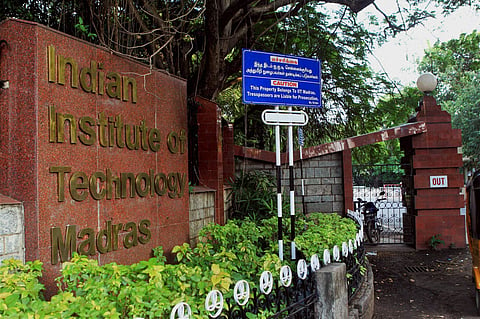

CHENNAI: More than 300 students at IIT Madras staged a protest on the campus after they were denied breakfast at the hostel on Thursday, as the college demanded students to pay the mess fees for the full semester in advance. During the protest, students also raised the issue of burden on Ph.D. and MS students after the introduction of new credit courses, which require them to publish one paper every semester.
According to the students, many of them received emails stating that their mess allotment had been blocked due to unpaid hostel fee dues. “The Chairman Council of Wardens (CCW) instructed the students to pay fees up to July immediately to get mess allotments. This amount totals over Rs 60,000. Previously, it was flexible as students would pay every month while some would pay the entire amount in March.
The email had a threatening tone and they also mentioned locking the hostel rooms if the amount is not paid immediately,” said a student who participated in the protest. This move will adversely affect research scholars who have families to support and also impact economically disadvantaged students.
The students also mentioned that in the last semester, the institution increased the mess fees stating that new food items were included. However, as they have now returned to the old menu, it has angered the students. Additionally, other issues at the hostel including the quality of food and drinking water facilities were raised during the protest.
A major concern for research scholars is the introduction of credit courses to monitor their progress. According to them, the new system requires them to publish one paper every semester, which is impossible and would reduce the quality of their work.
“Under the new system, students who don’t publish papers every semester would receive lower grades and face scrutiny by the doctoral committee. This would put pressure on the scholars and grant more power to the guides. There are already systems in place, such as the submission of progress reports periodically and weekly work logs, to monitor our progress,” said a research scholar.
He added that while they support initiatives to monitor students who haven’t completed their Ph.Ds for more than five to seven years, this move would only hinder their work. Under the new system, they would also have to work 60 hours per week, which means 12 hours per day.
Following the protest, the dean of planning and the chairman council of wardens addressed the students. Later, the director also spoke to them. The administration has decided that students would be allowed to pay mess fees in instalments.
The director also agreed to reconsider the operational aspects of the credit course by taking inputs from the scholars, said the students. After the assurance, the students withdrew the protest.